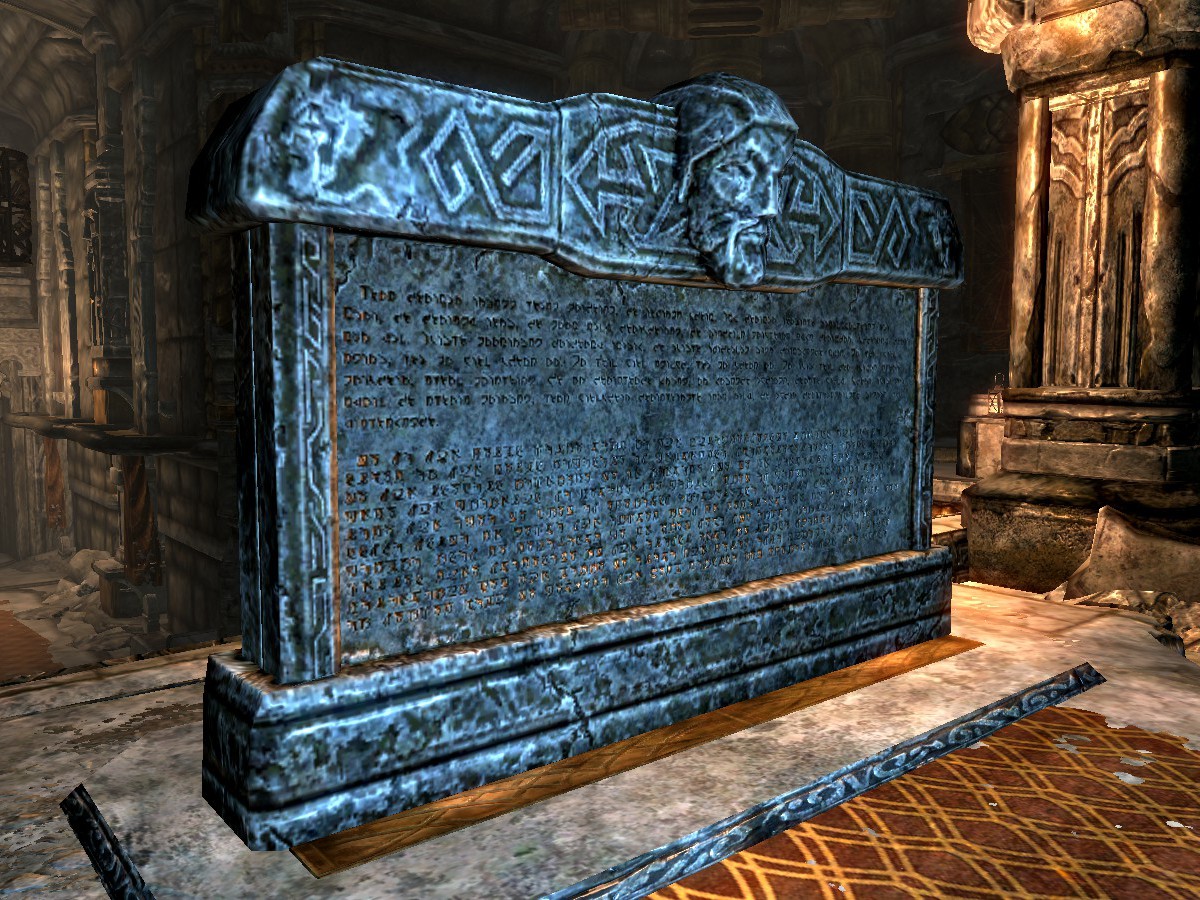As I pointed out in my Anniversary Update post, this quest presents some significant challenges to the moral agent. I was able to avoid the initial problem of stealing from Jarl Elisif in order to gain Gulum-Ei's information by simply Intimidating the Argonian. Following him into the warehouse, however, was much trickier, but I managed to complete it without killing anyone other than the bandits inside Gulum-Ei's hideout. I spared Gulum-Ei because, despite the gauntlet I had to run to catch up to him, he did not attack me directly, nor did he even know I was tailing him.
Speaking with Silence
Speaking with Silence is far more interesting plot-wise, but presents very few moral challenges. Nevertheless, the revelations in this quest shed some light on the morality of the Guild as a whole. Without detailing all of the intricate plot elements, I will simply say that The Thieves' Guild as it first presented in Skyrim is a hollow shell of its former self, mainly because of Mercer's betrayal. Therefore, many of the less charitable first impressions may have been based on an incomplete picture of the Guild.
Hard Answers
The next quest, like Scoundrel's Folly before it, presents a single moral challenge: trespassing into a friendly facility without being caught by the legitimate guards of said facility. I did not even have to steal anything this time; I made a charcoal rubbing of the artifact I needed and sneaked back out.
 |
| Nope. Not even with a hundred Fortify Carry Weight potions. |
The Pursuit
This quest presents a minor dilemma in the person of Vald, the hired thug at Mercer's house. My options for getting past Vald consisted of the following:
- Kill him
- Persuade him
- Pay his debt to Maven
Trinity Restored
This quest reveals the deeper essence of the Guild, which confirms my earlier suspicions about it being much more than a gang of criminals. Even though I was required to enter into a contract with the Daedric Prince Nocturnal, devotion to this entity consists of doing what I was doing anyway: thieving. Other than that, there are no further opportunities for moral agency.
Blindsighted
Aside from killing some bandits and a bunch of Falmer, we had to confront and kill Mercer Frey. Very straightforward.
Darkness Returns
None of these tests of strength, wit, and stealth are morally complex.
These quests form the main part of the Thieves' Guild line, and are engaging from both a moral and an narrative perspective. By completing them, I learned that the Guild exists to honor stealth and regulate crime, not merely to line the pockets of its members. When it is running at full strength, it is an organization that stabilizes the community by setting standards of criminal behavior and driving out destabilizing elements. As a moral agent, I was able to find justification for their existence, but that justification was about to be tested in the final part of the questline: Under New Management.
